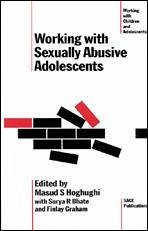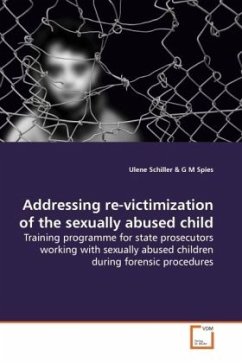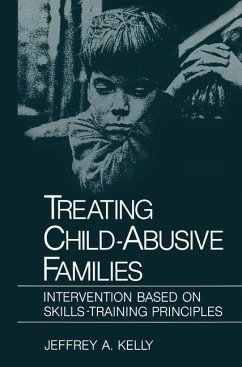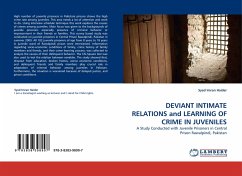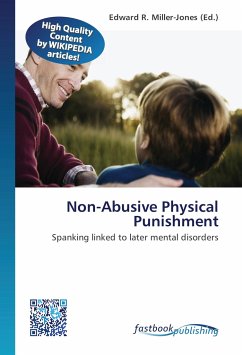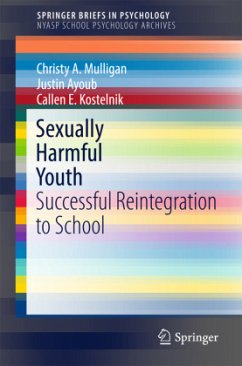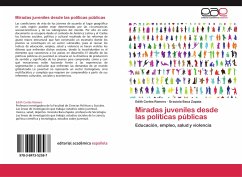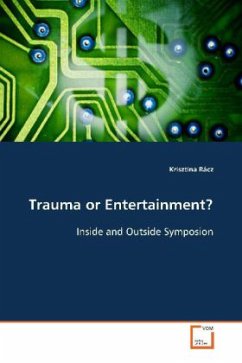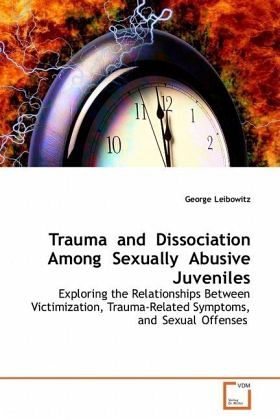
Trauma and Dissociation Among Sexually Abusive Juveniles
Exploring the Relationships Between Victimization, Trauma-Related Symptoms, and Sexual Offenses
Versandkostenfrei!
Versandfertig in 6-10 Tagen
39,99 €
inkl. MwSt.

PAYBACK Punkte
20 °P sammeln!
Elevated levels of dissociative symptoms, e.g.,amnesia and depersonalization, have been found to be a predictorof violent behavior in some studies. Traumaticdissociation-dissociation which results from traumatic stress-has been understudiedamong juvenile offenders and sexually abusive youth, despite thefact that high numbers of incarcerated adolescents have been exposedto multiple types of trauma. This research offers theoretical andclinical insights into the relationships between different types ofchildhood victimization, dissociation and trauma relateddisorders, including posttraumatic stres...
Elevated levels of dissociative symptoms, e.g.,
amnesia and
depersonalization, have been found to be a predictor
of violent
behavior in some studies. Traumatic
dissociation-dissociation which
results from traumatic stress-has been understudied
among juvenile
offenders and sexually abusive youth, despite the
fact that high
numbers of incarcerated adolescents have been exposed
to multiple
types of trauma. This research offers theoretical and
clinical insights
into the relationships between different types of
childhood
victimization, dissociation and trauma related
disorders, including
posttraumatic stress disorders, and subsequent
offending behaviors
in a large sample of delinquent youth and adolescent
sex offenders.
Preliminary links are established between
dissociation and traumatic
stress in this population, and a model is advanced
that indicates a
significant relationship between dissociation and
adolescent sexual
offending. Additionally, the author reviews the
historical and
contemporary conceptualizations of dissociation and
offers a
discussion of the possible racial and ethnic
differences in
dissociative symptoms.
amnesia and
depersonalization, have been found to be a predictor
of violent
behavior in some studies. Traumatic
dissociation-dissociation which
results from traumatic stress-has been understudied
among juvenile
offenders and sexually abusive youth, despite the
fact that high
numbers of incarcerated adolescents have been exposed
to multiple
types of trauma. This research offers theoretical and
clinical insights
into the relationships between different types of
childhood
victimization, dissociation and trauma related
disorders, including
posttraumatic stress disorders, and subsequent
offending behaviors
in a large sample of delinquent youth and adolescent
sex offenders.
Preliminary links are established between
dissociation and traumatic
stress in this population, and a model is advanced
that indicates a
significant relationship between dissociation and
adolescent sexual
offending. Additionally, the author reviews the
historical and
contemporary conceptualizations of dissociation and
offers a
discussion of the possible racial and ethnic
differences in
dissociative symptoms.



